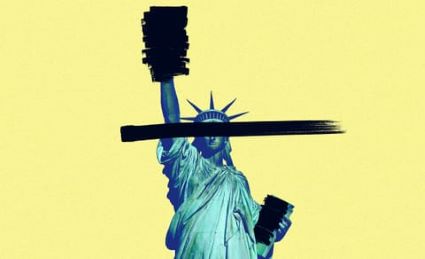Polling

Suggest an important issue not listed in this sub-category (). (Maximum 60 Characters)
Freedom of information act

The 1966 Freedom of Information Act (FOIA) provides that any person has the right of access to federal agency records or information. FOIA covers not only executive branch-created records, but also records in the executive branch’s possession. This Act carries a presumption of disclosure. The burden is on the government, not the public, to substantiate why information may not be released. Upon written request, government agencies are required to disclose requested records unless those documents can be lawfully withheld from disclosure under one of nine specific exemptions in the FOIA. However, previous administrations have greatly expanded the use of these exemptions and denied information requests made under the Act while encouraging its agencies to resist FOIA requests.
Federal agencies now stretch FOIA exemptions to hide records that may paint the agency in a bad light or reveal its problems and embarrassing information. Administrations claim increased secrecy is needed to protect national security and privacy issues. They also fear incriminating FOIA information could be used in the discovery stage of a civil litigation. Critics say this policy change not only prevents transparency in government actions but also allows privately operated bridges, dams, ports or power and chemical plants to hide health and safety information simply by voluntarily submitting their data to the Department of Homeland Security.
Critics call FOIA’s Exemption 5 -meant to protect certain internal government deliberations- the “most abused exemption.” It is cited about 5,000 times each month. The 2016 FOIA Improvement Act includes provisions specifically seeking to constrain the overuse and abuse of Exemption 5, requiring agencies to apply a “foreseeable harm” standard when seeking to withhold records under this exemption. However, critics say administrations continue to deny many legitimate FOIA requests.
Proposed Legislation: Introducing legislation to limit federal agencies use of the Freedom of information Act’s Exemption 5
Prospective Sponsor: Rep. Zoe Lofgren (CA)
Federal agencies now stretch FOIA exemptions to hide records that may paint the agency in a bad light or reveal its problems and embarrassing information. Administrations claim increased secrecy is needed to protect national security and privacy issues. They also fear incriminating FOIA information could be used in the discovery stage of a civil litigation. Critics say this policy change not only prevents transparency in government actions but also allows privately operated bridges, dams, ports or power and chemical plants to hide health and safety information simply by voluntarily submitting their data to the Department of Homeland Security.
Critics call FOIA’s Exemption 5 -meant to protect certain internal government deliberations- the “most abused exemption.” It is cited about 5,000 times each month. The 2016 FOIA Improvement Act includes provisions specifically seeking to constrain the overuse and abuse of Exemption 5, requiring agencies to apply a “foreseeable harm” standard when seeking to withhold records under this exemption. However, critics say administrations continue to deny many legitimate FOIA requests.
Proposed Legislation: Introducing legislation to limit federal agencies use of the Freedom of information Act’s Exemption 5
Prospective Sponsor: Rep. Zoe Lofgren (CA)
Poll Opening Date
November 4, 2024
Poll Closing Date
November 10, 2024
Democracy Rules respects the privacy of your information.
See PRIVACY STATEMENT
See PRIVACY STATEMENT